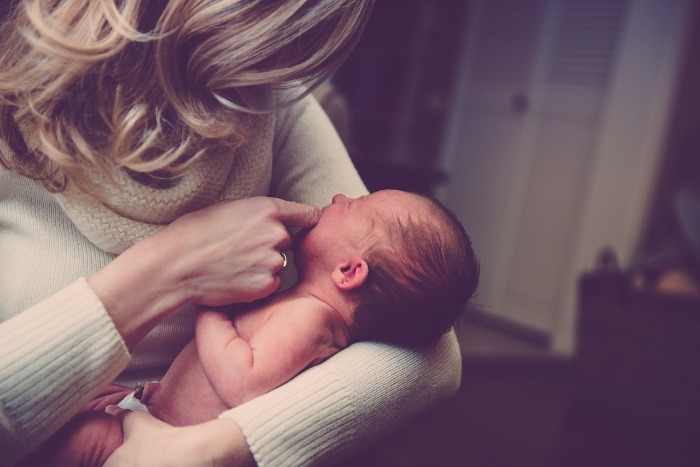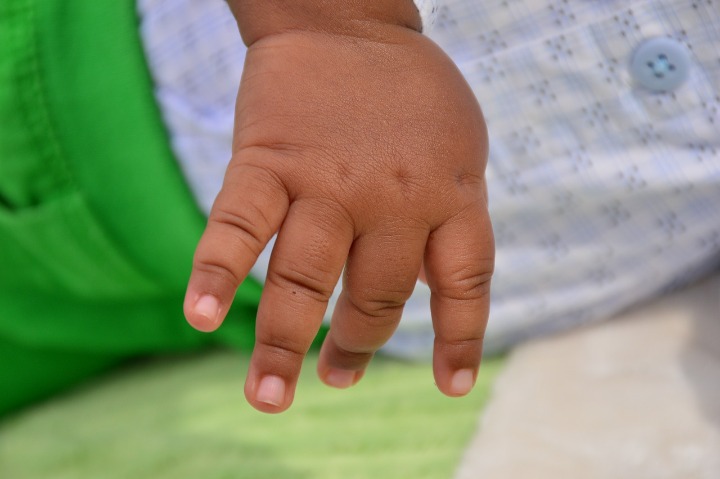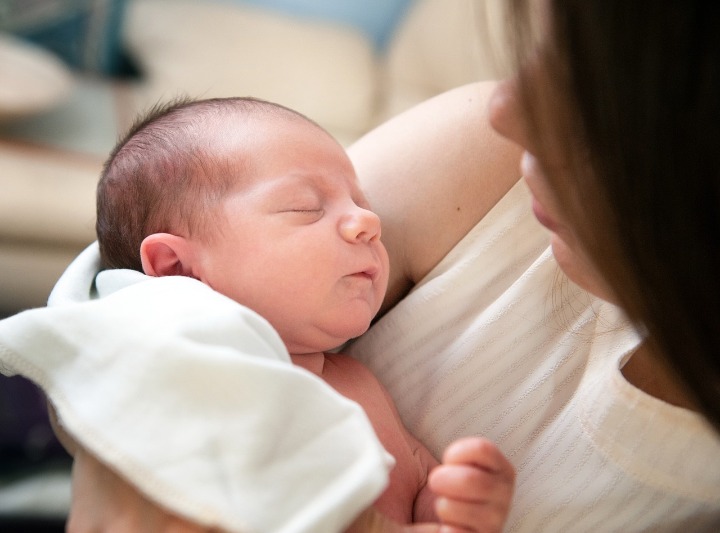Many women opt to breastfeed their newborn. On the whole, this is encouraged by professionals where it’s safe to do so.
A topic that doesn’t get enough attention is how cannabis use in mothers affects newborns.
With a recent study reporting that 380,000 people smoked cannabis weekly in the UK, it’s safe to assume many breastfeeding mothers might be using cannabis.(1)
THC strains of cannabis cause psychoactiveaddiction.
When a pregnancy occurs or a baby arrives, it’s easy to find all the messages advising against smoking tobacco and drinking alcohol, but cannabis? The information is harder to find.

Many mothers don’t share that they’re using cannabis. This might be linked to being worried about being seen as a bad parent.
What this results in is a lack of understandingof how cannabis use impacts the baby.
It’s helpful to bear in mind that cannabis is a drug with sometimes negative effects and as such, it’s useful to consider the implications where a newborn is concerned.
It’s well known that breastfeeding has health benefits for a newborn. Actually, research shows that breastfeeding decreases the risk of mortality within the first 6 months.
It also reduces the risk of diabetes, obesity, childhood cancer, and respiratory infections. Breastfeeding is also linked to healthier outcomes for the mother.(2)
Despite how common cannabis smoking is and how medicinal uses are increasing, there isn’t that much advice with regards to using cannabis in relation to breastfeeding.
Whereas there are very clear messages against smoking tobacco and drinking alcohol, you don’t see many messages in relation to cannabis.
Unfortunately, there’s a lack of research and information in this area, but the few studies that were carried out suggest that cannabis use during pregnancy and while breastfeeding is inadvisable.
There are many NHS leaflets online that advise mothers not to use cannabis while breastfeeding.
The reasons for this are linked to how THC passes through breast milk to the newborn and this increasing negative health risks.

There are both short-term and long-term effects worth considering. The two main active chemicals in cannabis are CBD and THC.
CBD is non-psychoactive, but it does make people feel relaxed and is known to ease nausea and pain.
It’s used in a therapeutic sense, usually around treating people with pain conditions, cancer, epilepsy, and multiple sclerosis. This is why it was legalised in the UK.
THC is psychoactive meaning it has a direct impact on the brain. This is the chemical that makes people high.
It can also cause withdrawal. THC strains of cannabis are addictive and are illegal in the UK.

In the short-term, although there is hardly any research about the effects of cannabis on newborns, one might assume that a baby’s emotional regulation and behaviour would be influenced by these chemicals when it enters their system through drinking breast milk.
Neurodevelopment refers to how the brain develops and influences performance and overall functioning.
This can be linked to both thoughts and behaviours. Newborns exposed to cannabis are more likely to have delayed cognition. (3)
Some research studies report that for children exposed to cannabis during breastfeeding, there is reduced performance in:
A review of these studies, however, recognised that there wasn’t much accounting for other influences on these outcomes (such as the environment in which the child was being raised). (2)
Motor development is connected to an infant’s physical growth, strength, and ability to move around and interact with its environment.
One study showed that motor development for newborns in mothers who used cannabis more than 15 days of the month was reduced.(2)

There isn’t much reported on an infant’s emotional reaction in relation to cannabis use, but this is likely due to the lack of research in the area.
It might be useful to consider that where newborns have been exposed to other substances in the womb, they then go on to suffer from emotional dysregulation.
This is the case for pregnant women who use heroin, alcohol, prescription painkillers, but also substances such as tobacco and coffee.
If THCenters the newborn through breast milk, it’s safe to assume that there could be some related emotional dysregulation.
This might result in the baby crying more often and the mother not being able to pick up on whether this is due to hunger, the need for comfort, tiredness etc.
Preterm birth is when the baby is born before 37 weeks. Premature babies are at an increased risk of illnesses and complications, such as brain, blood, and heart problems, breathing problems, etc.
Preterm birth is more likely to occur when the mother is a heavy user of cannabis. (4)
Babies born to cannabis-using mothers usually have a lower birth weight. This is increased where tobacco is used and, of course, there are even more negative health implications if the child is exposed to cannabis as well. (5)
Perhaps due to its harrowing nature, there isn’t much research to be found on cannabis and stillbirth.
Although, one study refers to an association between smoking cannabis as well as being exposed to secondhand smoke and stillbirth. (6)
Research indicates that cannabis use is associated with an increased likelihood of death within the first 28 days of birth.
Although there could be more research done in the area, the few studies there suggest negative effects for the newborn.
In general, medical advice is usually to stop using cannabis where possible and at the very least, reduce it.
The main consensus is that it’s better not to breastfeed if you continue using cannabis, especially if you use it a lot and regularly.

Pump and dump refers to expressing milk and throwing it away. Some mothers might think this eliminates the chemicals making their breast milk safe. This isn’t the case.
THC is stored in body fat and released over a period of time.
This means that your infant is exposed to chemicals for a longer period of time than you realise.
THC can stay in breast milk from 6 days to 6 weeks.(2) It’s therefore inadvisable to assume your milk is substance-free after a few “pump and dumps”.
Cannabis shouldn’t be smoked around newborns. There are toxic chemicals in smoke.
It also makes breathing problems, asthma, and allergies more likely.
One study showed a link between paternal smoking of cannabis and an increased risk of sudden infant death syndrome. Of course, this makes smoking near newborns completely inadvisable.
With more people turning to CBD oil products in the UK, mothers may wonder whether it’s safe to use.
CBD isn’t psychoactive, but it is active in the sense that it causes physiological effects (as mentioned earlier).
The only research mentioning CBD in relation to breastfeeding suggests that the main worry would be around contaminants and pesticides in the product that you wouldn’t want to expose the baby to.
It should also be noted that some CBD strains contain THC (the psychoactive and addictive chemical).

If you’re thinking about quitting cannabis, you can get support from local rehabilitation services. There are both NHS-funded and private clinics throughout the UK.
If you’re pregnant, it’s beneficial to seek more personalised guidance and support, especially if you’re using other substances or also have a mental health condition. Contacting rehab professionals can help you with this.
Treatments for cannabis addiction usually focus on counselling and introducing new enjoyable activities into your life.
Therapies are also available. They tend to support you in changing how you think in order to positively influence healthier behaviours.
There are also groups that you can attend to get tips and support from an understanding social network.
Sadly, there could be a lot more research completed around the effects of cannabis use and breastfeeding.
With the drug’s popularity and widespread use coupled with the lack of health messages about it in popular media, it seems obvious that many mothers might be feeding their newborns without beneficial information about the health effects.
The active chemicals in cannabis pass on to newborns through breast milk for up to 6 weeks after the mother last ingested the substance.
Existing research indicates that there are increased serious health risks for newborns and childhood outcomes in the long run.
The safest way to reduce the risk to your baby is by stopping smoking cannabis (and tobacco).
If you’re concerned about having an addiction, you can access support to stop. Contact Rehab 4 Addiction for information on local rehabilitation services.
[1] https://www.kcl.ac.uk/news/380k-non-smokers-regularly-smoke-cannabis-putting-their-health-at-risk
[2] https://journals.sagepub.com/doi/10.1177/0081246319893934
[3] https://www.ncbi.nlm.nih.gov/books/NBK501587/
[4] https://www.ingentaconnect.com/content/springer/clac/2012/00000003/00000003/art00004
[5] https://www.ncbi.nlm.nih.gov/pmc/articles/PMC6370295/#R4
[6] https://www.nichd.nih.gov/health/topics/stillbirth/topicinfo/risk